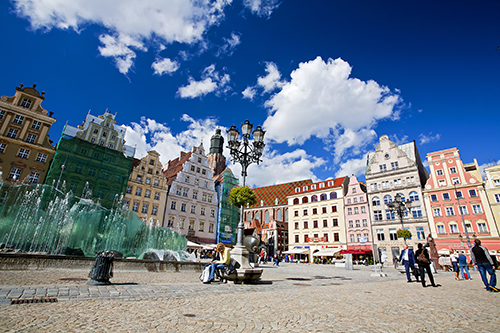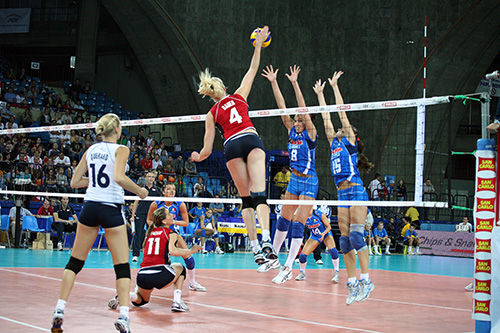Wrocław is the fourth-largest city in Poland and the largest in the west of the country, with a community numbering over 630,000 inhabitants.
It lies across the Oder river and four tributaries, and as many as 12 islands are to be found within its boundaries – it is criss-crossed by over 100 bridges. The city is the administrative, economic and cultural capital of Lower Silesia.
In its thousand-year history Wrocław has belonged to several states. As a result it has become a city linking the work and traditions of various nations, of Czechs, Germans and Poles. Following the Second World War, the largest population exchange in Europe took place here. New residents arrived in the devastated city from all corners of Poland, the local community being rebuilt almost from the ground up.
Wrocław is a city of tolerance and many faiths: Catholicism, Protestantism, the Orthodox faith and Judaism. Multicultural and open to new ideas and challenges, it is famous for its hospitality, and its cultural life fascinates and attracts. The extraordinary history of the city is constantly enriched by prestigious scientific, cultural and sporting events. It is Wrocław which will in 2016 become European Capital of Culture, the slogan of our presidency being 'Spaces for beauty', and in 2017 it will play host to the World Games.
In 2016, Wrocław, alongside the Spanish city of Donostia-San Sebastian, will boast the honour of European Capital of Culture. This is the European Union’s most recognizable initiative in the area of culture, and it is considered an exceptionally prestigious distinction for each city which receives the title.
City portal: http://www.wroclaw.pl/en
Mobile city guide: www.mobi.wroclaw.pl/en
Website: www.halastulecia.pl
More info about Wroclaw

CENTENNIAL HALL WROCŁAW

The Centennial Hall, created by a prominent architect, Max Berg, is considered one of the greatest 20th-century works of architecture. The Centennial Hall compound is now one of the most desired locations for Polish and international organisers of large exhibitions, conferences, cultural and sports events or congresses.
Modernised, multifunctional space, unique location and original design are the main advantages of the Hall which will host the 2014 FIVB Men's Volleyball World Championship. Listed as a UNESCO World Heritage Site in 2006, the Centennial Hall is an object of great importance. Undoubtedly, it is one of the most characteristic places in Wrocław known in the world.
An additional asset to the Hall is the Multimedia Fountain – the largest in Poland and one of the largest in Europe. It covers an area of almost 1 hectare and its bottom is equipped with 800 light spots and 300 water nozzles. A water show synchronised with music is an amazing artistic experience.
The Centennial Hall has hosted a lot of prestigious sports events, e.g. European Basketball Championship, games of Volleyball World League, International Boxing Shows, concerts (e.g. of Leonard Cohen, Deep Purple), trade fairs, congresses and conferences.
For 100 years, the Centennial Hall has been the show-piece of Wrocław and of the whole region of Lower Silesia. It attracts thousands of visitors and organisers every year, who come to the Szczytnicki Park to visit the Hall and develop its potential.
Technical information:
Built in – 1913
Modernised in – 2011
Maximum capacity – 8,000 seats
Number of spots for the disabled – first row spots in the stands – 8; it is possible to make room for the disabled on the main pitch
Number of entrances – 17